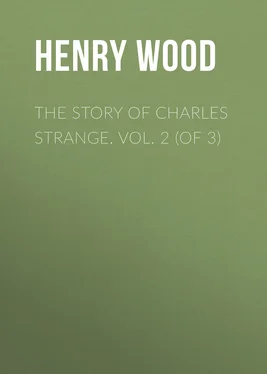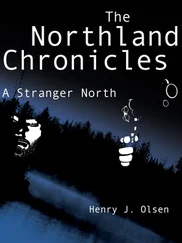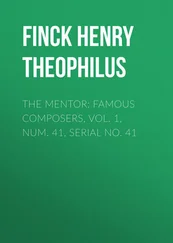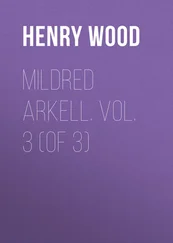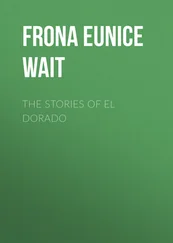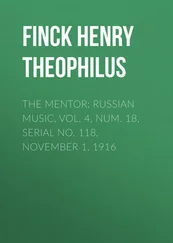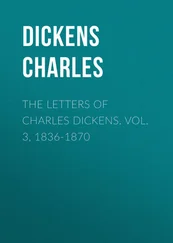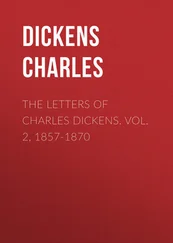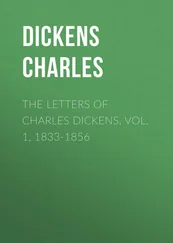Henry Wood - The Story of Charles Strange. Vol. 2 (of 3)
Здесь есть возможность читать онлайн «Henry Wood - The Story of Charles Strange. Vol. 2 (of 3)» — ознакомительный отрывок электронной книги совершенно бесплатно, а после прочтения отрывка купить полную версию. В некоторых случаях можно слушать аудио, скачать через торрент в формате fb2 и присутствует краткое содержание. Жанр: foreign_sf, literature_19, foreign_antique, foreign_prose, на английском языке. Описание произведения, (предисловие) а так же отзывы посетителей доступны на портале библиотеки ЛибКат.
- Название:The Story of Charles Strange. Vol. 2 (of 3)
- Автор:
- Жанр:
- Год:неизвестен
- ISBN:нет данных
- Рейтинг книги:5 / 5. Голосов: 1
-
Избранное:Добавить в избранное
- Отзывы:
-
Ваша оценка:
- 100
- 1
- 2
- 3
- 4
- 5
The Story of Charles Strange. Vol. 2 (of 3): краткое содержание, описание и аннотация
Предлагаем к чтению аннотацию, описание, краткое содержание или предисловие (зависит от того, что написал сам автор книги «The Story of Charles Strange. Vol. 2 (of 3)»). Если вы не нашли необходимую информацию о книге — напишите в комментариях, мы постараемся отыскать её.
The Story of Charles Strange. Vol. 2 (of 3) — читать онлайн ознакомительный отрывок
Ниже представлен текст книги, разбитый по страницам. Система сохранения места последней прочитанной страницы, позволяет с удобством читать онлайн бесплатно книгу «The Story of Charles Strange. Vol. 2 (of 3)», без необходимости каждый раз заново искать на чём Вы остановились. Поставьте закладку, и сможете в любой момент перейти на страницу, на которой закончили чтение.
Интервал:
Закладка:
While Mr. Brightman was saying this, a clerk came in, handed a letter to him and retired.
"What a nuisance!" cried he, as he read it by fire-light. I looked up at the exclamation.
"Sir Edmund Clavering's coming to town this evening, and wants me to be here to see him!" he explained. "I can't go home to dinner now."
"Which train is he coming by?" I asked.
"One that is due at Euston Square at six o'clock," replied Mr. Brightman, referring to the letter. "I wanted to be home early this evening."
"You are not obliged to wait, sir," I said. I wished to my heart later—oh, how I wished it!—that he had not waited!
"I suppose I must, Charles. He is a good client, and easily takes offence. Recollect that breeze we had with him three or four months ago."
The clocks struck five as he spoke, and we heard the clerks leaving as usual. I have already stated that no difference was made in the working hours on Saturdays in those days. Afterwards, Mr. Lennard came up to ask whether there was anything more to be done.
"Not now," replied Mr. Brightman. "But I tell you what, Lennard," he added, as a thought seemed to occur to him, "you may as well look in again to-night, about half-past seven or eight, if it won't inconvenience you. Sir Edmund Clavering is coming up; I conclude it is for something special; and I may have instructions to give for Monday morning."
"Very well," replied Lennard. "I will come."
He went out as he spoke; a spare, gentlemanly man, with a fair complexion and thin, careworn face. Edgar Lennard was a man of few words, but attentive and always at his post, a most efficient superintendent of the office and of the clerks in general.
He left and Mr. Brightman rose, saying he would go and get some dinner at the Rainbow. I suggested that he should share my modest steak, adding that Leah could as easily send up enough for two as for one: but he preferred to go out. I rang the bell as I heard him close the frontdoor. Watts answered it, and lighted the gas.
"Tell your wife to prepare my dinner at once," I said to him; "or as soon as possible: Mr. Brightman is coming back to-night. You are going out, are you not?"
"Yes, sir, about that business. Mr. Lennard said I had better go as soon as I had had my tea."
"All right. It will take you two or three hours to get there and back again. See to the fire in the next room; it is to be kept up. And, Watts, tell Leah not to trouble about vegetables to-day: I can't wait for them."
In about twenty minutes Leah and the steak appeared. I could not help looking at her as she placed the tray on the table and settled the dishes. Thin, haggard, untidy, Leah presented a strange contrast to the trim, well-dressed upper servant I had known at White Littleham Rectory. It was Watts who generally waited upon me. When Leah knew beforehand that she would have to wait, she put herself straight. Today she had not known. My proper sitting-room upstairs was not much used in winter. This one was warm and comfortable, with the large fire kept in it all day, so I generally remained in it. I was not troubled with clients after office hours.
"I wonder you go such a figure, Leah!" I could not help saying so.
"It is cleaning-day, Mr. Charles. And I did not know I should have to come up here. Watts has just gone out."
"It is a strange thing to me that you cannot get a woman in to help you. I have said so before."
"Ah, sir, nobody knows where the shoe pinches but he who wears it."
With this remark, unintelligible as apropos to the question, and a deep sigh, Leah withdrew. I had finished dinner, and the tray was taken away before Mr. Brightman returned.
"Now I hope Sir Edmund will be punctual," he cried, as we sat together, talking over a glass of sherry. "It is half-past six: time he was here."
"And there he is!" I exclaimed, as a ring and a knock that shook the house resounded in our ears. After five o'clock the front door was always closed.
Watts being out, we heard Leah answer the door in her charming costume. But clients pay little attention to the attire of laundresses in chambers.
"Good heavens! Can Sir Edmund have taken too much!" uttered Mr. Brightman, halting as he was about to enter the other room to receive him. Loud sounds in a man's voice arose from the passage; singing, laughing, joking with Leah. "Open the door, Charles."
I had already opened it, and saw, not Sir Edmund Clavering, but the young country client, George Coney, the son of a substantial and respectable yeoman in Gloucestershire. He appeared to be in exalted spirits, and had a little exceeded, but was very far from being intoxicated.
"What, is Mr. Brightman here? I only expected to see you," cried he, shaking hands with both. "Look here!" holding out a small canvas bag, and rattling it. "What does that sound like?"
"It sounds like gold," said Mr. Brightman.
"Right, Mr. Brightman; thirty golden sovereigns: and I am as delighted with them as if they were thirty hundred," said he, opening the bag and displaying its contents. "Last week I got swindled out of a horse down at home. Thirty pounds I sold him for, and he and the purchaser disappeared and forgot to pay. My father went on at me, like our old mill clacking; not so much for the loss of the thirty pounds, as at my being done: and all the farmers round about clacked at me, like so many more mills. Pleasant, that, for a fellow, was it not?"
"Very," said Mr. Brightman, while I laughed.
"I did not care to stand it," went on George Coney. "I obtained a bit of a clue, and the day before yesterday I came up to London—and I have met with luck. This afternoon I dropped across the very chap, where I had waited for him since the morning. He was going into a public-house, and another with him, and I pinned them in the room, with a policeman outside, and he pretty soon shelled out the thirty pounds, rather than be taken. That's luck, I hope." He opened the bag as he spoke, and displayed the gold.
"Remarkable luck, to get the money," observed Mr. Brightman.
"I expect they had been in luck themselves," continued young Coney, "for they had more gold with them, and several notes. They were for paying me in notes, but 'No, thank ye,' said I, 'I know good gold when I see it, and I'll take it in that.'"
"I am glad you have been so fortunate," said Mr. Brightman. "When do you return home?"
"I did mean to go to-night, and I called to leave with you this small deed that my father said I might as well bring up with me, as I was coming"—producing a thin folded parchment from his capacious pocketbook. "But I began thinking, as I came along, that I might as well have a bit of a spree now I am here, and go down by Monday night's train," added the young man, tying up the bag again, and slipping it into his pocket. "I shall go to a theatre to-night."
"Not with that bag of gold about you?" said Mr. Brightman.
"Why not?"
"Why not? Because you would have no trace of it left to-morrow morning."
George Coney laughed good-humouredly. "I can take care of myself, sir."
"Perhaps so; but you can't take care of the gold. Come, hand it over to me. Your father will thank me for being determined, and you also, Mr. George, when you have cooled down from the seductions of London."
"I may want to spend some of it," returned George Coney. "Let's see how much I have," cried he, turning the loose money out of his pockets. "Four pounds, seven shillings, and a few halfpence," he concluded, counting it up.
"A great deal too much to squander or lose in one night," remarked Mr. Brightman. "Here," added he, unlocking a deep drawer in his desk, "put your bag in here, and come for it on Monday."
George Coney drew the bag from his pocket, but not without a few remonstrative shakes of the head, and put it in the drawer. Mr. Brightman locked it, and restored the bunch of keys to his pocket.
Читать дальшеИнтервал:
Закладка:
Похожие книги на «The Story of Charles Strange. Vol. 2 (of 3)»
Представляем Вашему вниманию похожие книги на «The Story of Charles Strange. Vol. 2 (of 3)» списком для выбора. Мы отобрали схожую по названию и смыслу литературу в надежде предоставить читателям больше вариантов отыскать новые, интересные, ещё непрочитанные произведения.
Обсуждение, отзывы о книге «The Story of Charles Strange. Vol. 2 (of 3)» и просто собственные мнения читателей. Оставьте ваши комментарии, напишите, что Вы думаете о произведении, его смысле или главных героях. Укажите что конкретно понравилось, а что нет, и почему Вы так считаете.
